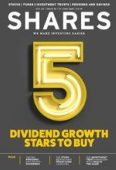Archived article
Please note that tax, investment, pension and ISA rules can change and the information and any views contained in this article may now be inaccurate.
The great ISA mysteries

The amount of money held in ISAs reached a record £620 billion in 2020, according to freshly published figures from HMRC, demonstrating how successful these tax shelters have been in the two decades since they took over from PEPs and TESSAs.
The number of people contributing to a Lifetime ISA also doubled in a year, with more than half a million people subscribing to one of these new ISA accounts in 2019/20. However, there are a couple of behavioural mysteries in the ISA data, which suggest savers might not be using ISAs quite as productively as they might.
CASH OVER STOCKS
ISA savers are still largely plumping for cash rather than equities, despite incredibly low interest rates, and a personal savings allowance which means basic rate taxpayers don’t pay any tax on annual interest below £1,000 (£500 for higher rate and £0 for additional rate taxpayers). £49 billion was placed in Cash ISAs in 2019/20, compared with £24 billion into Stocks and Shares ISAs.
The big gap may well have something to do with the first lockdown and market turmoil hitting right at the end of the tax year, when many people make their ISA contribution.
That’s not the whole story though, because 2019/20 wasn’t a flash in the pan; Cash ISAs have proved much more popular than Stocks and Shares ISAs year in, year out. There are of course good reasons for people to hold money in cash, particularly if they need it in the next five years.
However, given how much people now seem to have in cash accounts, most paying measly rates of interest, the question does arise whether people are holding too much, and missing out on higher long-term returns they might harvest from investing in the stock market instead. Indeed, last year the financial regulator went so far as to flag holding too much cash as a risk for savers.
WHY DO SOME PEOPLE SHUN ISAS
The second puzzling aspect of the data is quite how many high earners don’t have an ISA. An estimated 40% of those earning over £100,000 don’t have any ISA savings whatsoever. That’s in spite of the fact they face marginal tax rates of up to 60%, which an ISA could protect them from.
People earning this amount also clearly have the capacity to save lots of money, unless they have a particularly lavish lifestyle.
It’s possible that higher earners are choosing to divert their savings into a pension instead, given the high rates of tax relief they can get on contributions. But there’s still a limit of £40,000 a year on pension contributions, including those from employers, which are likely to be quite generous for high earners.
It also doesn’t properly explain why so many high earners don’t have any ISA savings at all, seeing as they work well alongside pensions as a more accessible tax shelter which you can draw on before retirement.
Some high earners may be business owners, and recycle spare earnings back into their business. That’s understandable, but risky, seeing as your income and your savings are all then tied up in the same business, rather than adding a bit of diversification by putting some money into an ISA.
Low interest rates may also mean that high earners don’t think it’s worth getting a Cash ISA. Additional rate taxpayers don’t get any personal savings allowance though, so for each £100 of cash interest they receive, they are taxed £45, making a Cash ISA worthwhile, even if they don’t want to invest in shares.
LACK OF TIME
Perhaps some high earners are simply monumentally busy, committing a lot of time to their work responsibilities, and leaving little gas in the tank to get their financial affairs in order.
Whatever the reason, there is a significant proportion of higher earners who appear to be missing out on the tax benefits of an ISA.
There are even more who aren’t taking advantage of the full £20,000 allowance, which was only used by around 20% of those earning a six figure sum in 2018/19. The ISA has undoubtedly been a success story in getting people to save for their future, but some high earners who could benefit most appear to be unmoved by its attractions. It’s a puzzler, for sure.
Important information:
These articles are provided by Shares magazine which is published by AJ Bell Media, a part of AJ Bell. Shares is not written by AJ Bell.
Shares is provided for your general information and use and is not a personal recommendation to invest. It is not intended to be relied upon by you in making or not making any investment decisions. The investments referred to in these articles will not be suitable for all investors. If in doubt please seek appropriate independent financial advice.
Investors acting on the information in these articles do so at their own risk and AJ Bell Media and its staff do not accept liability for losses suffered by investors as a result of their investment decisions.
Issue contents
Case study
Great Ideas
- SkinBio Therapeutics' psoriasis supplement could be a real money spinner
- BlackRock Throgmorton shoots the lights out amid mid-cap momentum
- Change at the top to supercharge Brown Advisory US Smaller Companies
- Why Lindsell Train loves Diageo as much as we do
- Aurora Investment Trust moves into top gear thanks to value tailwind
- Inditex's sales and earnings growth defy the doubters
Investment Trusts
Money Matters
News
- Record job additions not sparking inflation fears yet
- Markets unmoved by lockdown easing delay
- Space the new frontier for investors as ETF and investment trust launch
- GlaxoSmithKline to spin-off £30 billion consumer healthcare arm in 2022
- Regulator tells companies to prioritise pensions over dividends

 magazine
magazine








